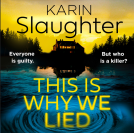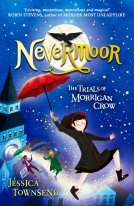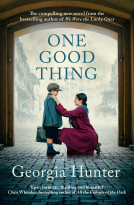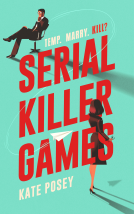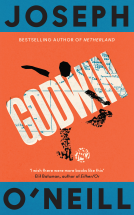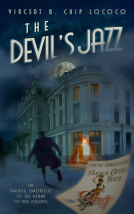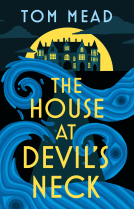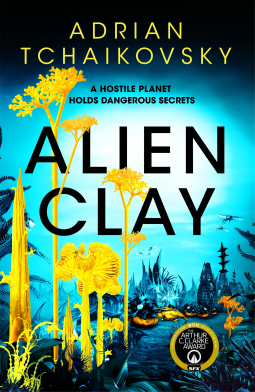
Alien Clay
A mind-bending journey into the unknown from this acclaimed Arthur C. Clarke Award winner
by Adrian Tchaikovsky
This title was previously available on NetGalley and is now archived.
Send NetGalley books directly to your Kindle or Kindle app
1
To read on a Kindle or Kindle app, please add kindle@netgalley.com as an approved email address to receive files in your Amazon account. Click here for step-by-step instructions.
2
Also find your Kindle email address within your Amazon account, and enter it here.
Pub Date 28 Mar 2024 | Archive Date 13 May 2024
Pan Macmillan | Tor
Talking about this book? Use #AlienClay #NetGalley. More hashtag tips!
Description
Alien Clay is a thrilling far-future adventure by acclaimed Arthur C. Clarke Award-winning author Adrian Tchaikovsky.‘Unputdownable’ – Stephen Baxter, author of Proxima
They travelled into the unknown and left themselves behind . . .
Professor Arton Daghdev has always wanted to study alien life in person. But when his political activism sees him exiled to the planet Kiln, condemned to work under an unfamiliar sky until he dies, his idealistic wish becomes a terrible reality.
Kiln boasts a ravenous, chaotic ecosystem. Its monstrous alien life means Arton will risk death on a daily basis – if the camp’s oppressive regime doesn’t kill him first. But, if he survives, Kiln’s lost civilization holds a wondrous, terrible secret. It will redefine life and intelligence as he knows it – and might just set him free.
‘A warning for a future we don’t want . . . Highly recommended’ – Tade Thompson
‘An excellent story told with Adrian’s trademark skill and flair’ – James Oswald
‘An intriguing puzzle with plenty of thrills’ – The Guardian
Available Editions
| EDITION | Other Format |
| ISBN | 9781035013746 |
| PRICE | £22.00 (GBP) |
| PAGES | 560 |
Available on NetGalley
Featured Reviews
This is for me the SF writer of the moment and this title is as good as any of his - which is saying a lot. Themes of contemporary (if chilling) resonance, blended with exciting involvement to rival the best fantasies. This is a must read for fans and a great intro for AT newbies. Move aside George Orwell.
 Jessica J, Reviewer
Jessica J, Reviewer
A continuation of form for Adrian Tchaikovsky - there's something about his work involving first contact and evolution in particular that really appeals to me, and Alien Clay is no exception. I'm definitely going to check out more of his work now. Alien Clay feels quite different from The Children of Time novels in tone, and perhaps more informal. Though the world-building doesn't get particularly in-depth, the environment and society seem plausible all the same. There's also plenty of tension and body horror within the story. I found myself utterly gripped, and given some food for though.
4.5 rounded up to 5.
 andy d, Reviewer
andy d, Reviewer
A change of scene from the previous Tchaikovsky novels, I have been reading, but no loss of storytelling. Thoroughly enjoyable narrative, with themes of adaption and rebellion.
Alien Clay by Adrian Tchaikovsky
Reviewed by Nadya Mercik
A journey into otherness. A tale of confrontation – with the authorities, with the world around you, with yourself. A vibrant alien world steeped in science. And the same old traits of humanity that bring people onto the verge of catastrophe. Alien Clay by Adrian Tchaikovsky is another revolutionary adventure on an exoplanet with its own rules and paradigm, which humans try to reshape and make use of.
Arton Dagdev has finally been caught after a year of lying low as a revolutionary. He is sent to one of the Labour camps on an exoplanet. When he arrives, he is lucky to get a good deal. Thanks to his credentials as an ecologist and biologist, he is put into Dig Support. It’s a way down on the career ladder – most of the things he has to do are the level of a lab assistant or a beginning researcher. It is still better than other tasks, though. The Camp Commandant hopes that Arton will help them to solve the mystery of local artifacts – the tall dolmens which have writings on them. The problem is there are no traces of those who could have erected them.
As Daghdev is studying the local biology, which is based on symbiosis, he is invited to join the local Revolutionary Subcommittee. Risking his cosy position, he helps them to stage a coup, which fails. Most of the top leaders are executed, while Dagdev is sent into Excursions – the special teams that go out of the dome to clean the territory around the newly found artifacts. That’s when Arton’s real acquaintance with the local world begins.
The two main premises of the story constantly feed each other. As expected, Alien Clay boasts amazing worldbuilding. We are all familiar with the principle of symbiosis, but Tchaikovsky brings it to the next level and gives it a different scope, which creates a truly alien atmosphere. The constant attempts of the scientists to classify the local critters and their search for the Kiln man in accordance with Mandate's vision only accentuate the otherness and human troubles accepting it.
The revolutionary arc gives us a whole bunch of flawed and conflicted characters – they might not be that likeable, but sooner or later you get to empathise with them. Back on Earth, and on Kiln people are fighting against the Mandate – the authorities who separate everything into black and white, acceptable and unacceptable. Be it a desire to improve working conditions, or an unprecedented scientific view, the Mandate is going to prune it out. The premise works especially well with science, which can’t be limited to one paradigm as long as it keeps looking for truths. I loved how it epitomized in the scene where the lead Scientist presents an approximation of the Kiln Man, because they have to show some progress in their findings. And what they give looks like a caricature – a satirical way of thinking of an alien and as a result of the Mandate.
The plot of the story is tight and well-constructed. There are revelations and twists about the characters and the planet. But, in my opinion, the strong point of the story is its analysis of and pondering on human nature. What is it to be human? How does it feel to face a huge world and be a solitary sand grain in it? How do you cut the corners? How do you encompass it all? How do you stay yourself? What direction do you move in? It’s about openness fighting the survival instinct. The eternal questions made into a story of revolution and cognition.
Another masterpiece from Tchaikovsky, transporting us to a world where all is not quite what it seems. Those who are sent there are either seeking answers or simply trying to survive. Thank you for this title.
This was my first encounter with this author’s work and as a fan of science fiction I found it fascinating. It’s a well-paced tale that draws you in with a multitude of questions that must be answered, and by the end of the book, they are, although it feels like a slow and subtle reveal and there are no, big, ‘aha’ moments. Tchaikovsky leads you by the hand, allowing you to uncover the solutions yourself before pretty much confirming what you’ve already concluded. As such, there’s no great build of tension, or big reveal; you’re more left with a philosophical question and the overriding feeling that the most frightening thing about Arton’s experience on Kiln is the nature of the human’s he’s incarcerated with and fear itself. Which honestly, given our understanding of human nature, is no big surprise.
Thanks to NetGalley and PanMacmillan Tor for the chance to read an ARC.
Just wow!! This is the first of Adrian's books I've read although I have Shards of Earth and Children of Ruin on my TBR list. I'm blown away by Alien Clay. At first I wasn't entirely sure what to expect, but the story drags you in and won't let go. The world building is fantastic. The whole tale is so well written that its totally believable even though you know its sci-fi ... or is it?! There are plenty of twists and turns. Just when you've got all your ducks in a row about where the story is going, Adrian tells you to put them in a circle! Simply outstanding.
Thanks to Netgalley, the publisher and the author for a free copy in return for an honest review.
 Karen c, Bookseller
Karen c, Bookseller
Oh, I enjoyed this!
I loved Children of Time, and this in places has a similar feel.
A totalitarian and controlling regime called the Mandate disposed of dissidents, revolutionaries and anyone who they just didn’t much like by sending them to a prison planet a very, very long way away.
The story starts with a prison barge arriving at Kiln, one of the prison planets; it hits the ground running from the first sentence, which pulled me straight in.
Narrated in the first person by an academic dissident exiled to Kiln, who discovers he was deliberately sent here to use his specialist knowledge to work out the extremely complicated ecology of Kiln. There’s a big mystery which the Mandate expects answers to.
It’s a place where life is bleak and brutal and death is one wrong step away.
This is an intriguing and well paced novel, lots of excitement, and it piques the curiosity, doling out little hints and clues to the mystery of Kiln.
There’s one section which gets a bit confusing- sort of like in Children of Memory, which I found quite convoluted- and the narrator shares the contents of his dreams a lot, but mostly the pace is good and I finished the last 54% in one page-turning sitting.
 Ciaran S, Reviewer
Ciaran S, Reviewer
Another excellent piece of world building from Tchaikovsky, creating a vivid sense of an alien planet as well as the political context back on Earth through the first person narrative. The emphasis on Acceptable Wastage is so telling, especially in the hideous sounding travel arrangements through the stars, and then the mixture of prison camp and university hierarchy is intriguing. The symbiotic form of life on Kiln is fascinating and the slow realisation of what happens after prolonged exposure is perfect, setting the book up for a cracking finale. Superb read.
 Jenny A, Reviewer
Jenny A, Reviewer
A very unusual book, although this author has shown his vivid imagination in other books. I did enjoy reading it, although it wasn't a very light or easy read. but there did come a point where I found it very difficult to put this book down!
The setting was great, and any sci-fi lover will enjoy the method of arrival at the planet. Anyone who enjoys strange planets, strange plants and archaeology will also be intrigued.
I will continue to look out for books by this author, most are pretty compelling.
 Account D, Reviewer
Account D, Reviewer
My Review📖✒️
Alien Clay is an exhilarating, creative, enthralling, far-future saga with exceptional characters and deep-seated meaning with superb in-depth storytelling, transporting me back to his early work in Children of Time. Prolonging the drama, tension and suspense to nerve-stretching levels, seemingly pedestrian but far from it.
The scenario is that a disposable workforce in the form of prisoners is sent to various planets in the search for extraterrestrial life by the Mandate, a government seemingly having similar roots to the government of Orwell's classic 1984.
And so, enters the main protagonist, prisoner Professor Arton Daghdev, a xeno-ecologist and political dissident. Soon after arrival, he discovers that Kiln has a secret. Humanity is not the first intelligent life to set foot there. Unfortunately for Arton, those in charge, the hierarchy, evidence is a case of making it all up as you go along because fiction is far better than any factual evidence the scientists and their workers can actually come up with.
After a dismally failed coup, Arton has to join the Excurtionistas, the lowest of the low labour teams, those sent out to do the clearing and destroying of the terrain so the scientists can move in. The dirtiest and most dangerous of all the jobs on hand. Arton then needs to survive both the brutal rule of the camp commandant Terolan and the inexhaustible amount of alien horrors of the world around him. And then he might have an opportunity to discover what might transform not only Kiln but also distant Earth.
The world-building wasn't breaking any new ground, but saying that, the author's vivid and visually descriptive writing certainly adds an innovative dynamic, and the atmospheric hypnotic aura definitely brings full-on drama to proceedings. Xenobiology is something in which the author excels, as it is evident again here in this Amazonian-type world of Kiln.
As with much of the author's latest work, the narrative can get a little brutal, and you will find plenty of blood and gore splattered around. But it is all intrinsic to the story, so there is no surprise to the colourful content. There are some neat twists within the story because of all the deceit and skullduggery going on. Turncoats and traitors abound, as well as the usual bullies and thugs, making for some clever sub-plots.
With a host of intriguing supporting characters, there are some outstanding individuals, most notably the one-legged Dr Nimell Primatt, the bioscience team leader and Vertegio Keev, the Excurtions team leader. Their role in the narrative will play a definitive part in Arton's going forward.
As always in his books, the author has produced some unique technology and science throughout the narrative, and even though it can be extraordinarily mind-boggling at times, it's still incredibly fascinating and awe-inspiring.
Alien Clay is intense, intriguing and intelligent, not in the least predictable, and without a shred of doubt, totally memorable for all the right reasons. Another quality addition to the increasingly growing list of science fiction classics from Adrian Tchaikovsky. Highly recommended.
Many thanks, Pan Macmillan, Tor and NetGalley for the advanced copy of the book.
Readers who liked this book also liked:
Keith Martin; Konstantinos Mersinas; Guido Schmitz; Jassim Happa
Business, Leadership, Finance, Computers & Technology, Reference
Vincent B. "Chip" LoCoco
Historical Fiction, Horror, Mystery & Thrillers
